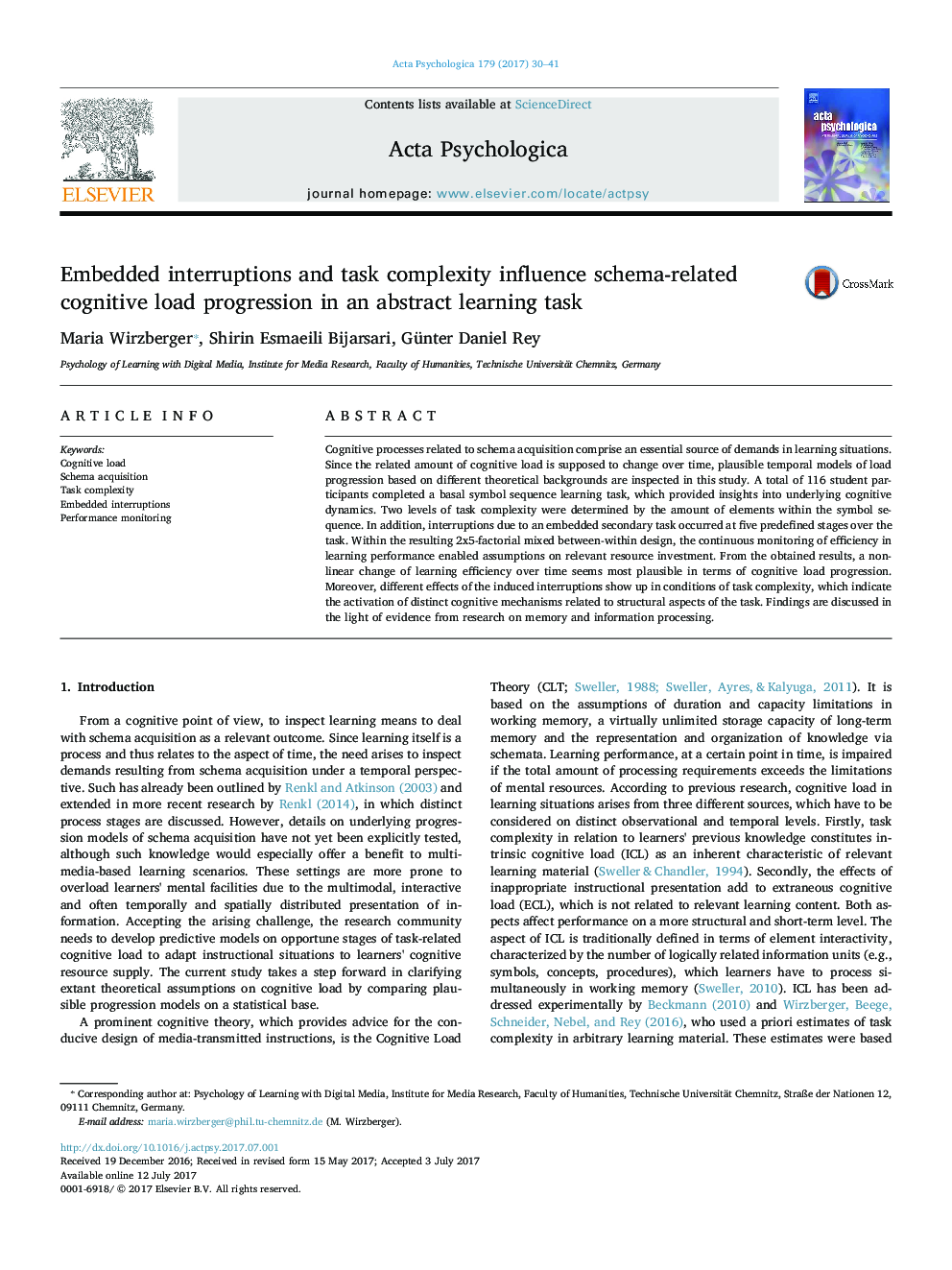| Article ID | Journal | Published Year | Pages | File Type |
|---|---|---|---|---|
| 5040220 | Acta Psychologica | 2017 | 12 Pages |
â¢Schema-induced cognitive load is considered from a process-related perspective.â¢A basal symbol sequence learning task provides a controlled experimental framework.â¢The setting varies task complexity and includes interruptions at predefined points.â¢Results indicate a nonlinear pattern of change in resource-related performance.â¢The impact of interruptions differs depending on task complexity and point in time.
Cognitive processes related to schema acquisition comprise an essential source of demands in learning situations. Since the related amount of cognitive load is supposed to change over time, plausible temporal models of load progression based on different theoretical backgrounds are inspected in this study. A total of 116 student participants completed a basal symbol sequence learning task, which provided insights into underlying cognitive dynamics. Two levels of task complexity were determined by the amount of elements within the symbol sequence. In addition, interruptions due to an embedded secondary task occurred at five predefined stages over the task. Within the resulting 2x5-factorial mixed between-within design, the continuous monitoring of efficiency in learning performance enabled assumptions on relevant resource investment. From the obtained results, a nonlinear change of learning efficiency over time seems most plausible in terms of cognitive load progression. Moreover, different effects of the induced interruptions show up in conditions of task complexity, which indicate the activation of distinct cognitive mechanisms related to structural aspects of the task. Findings are discussed in the light of evidence from research on memory and information processing.
